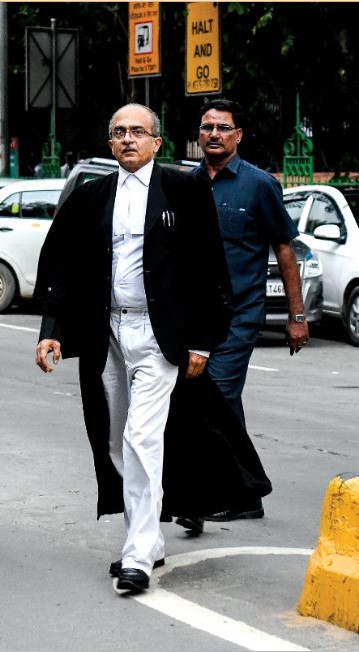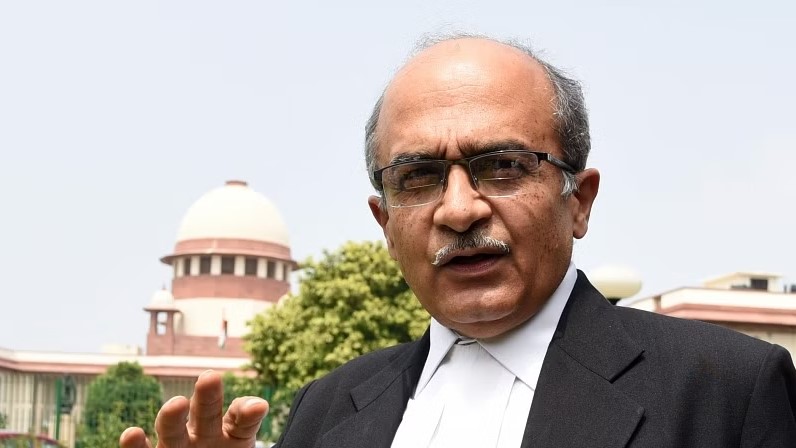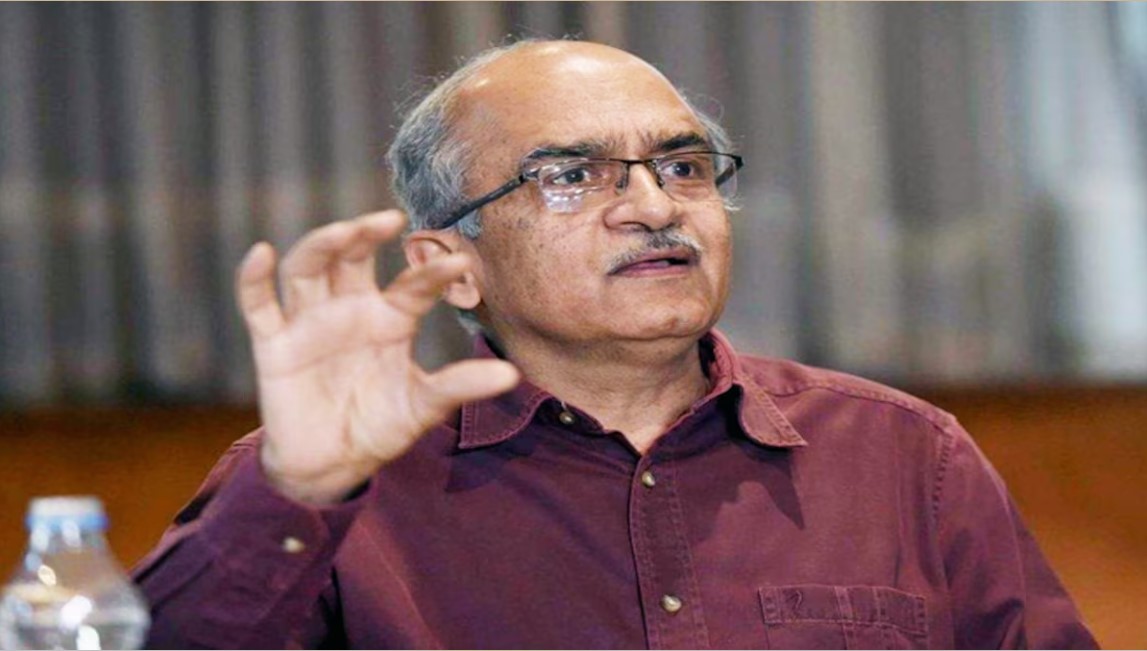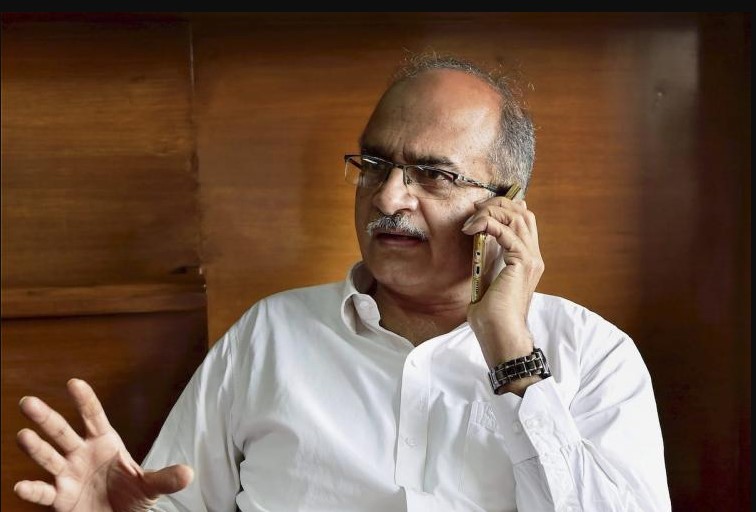Are you a follower of Prashant Bhushan? Are you searching on google for How to contact him? What is the WhatsApp number, contact number, or email id of Prashant Bhushan? What is the hometown and residence address of Prashant Bhushan? Who is the Contact Agent, Manager Prashant Bhushan? What is the Facebook, Twitter, or Instagram id of Prashant Bhushan? find out all these things in our article below.
Prashant Bhushan Wiki/Bio
Prashant Bhushan is an Indian attorney, activist and politician. He’s noted for his use of public interest litigation (PIL) to encourage a range of causes associated with corruption, environmental protection and human rights. He was a prominent member of this faction of the India Against Corruption (IAC) motion Called Team Anna which affirmed Anna Hazare’s effort for the execution of this Jan Lokpal Bill. Following a split in IAC, he helped Team Anna form the Aam Aadmi Party and was supporting most of AAP’s exposures. In 2015, he made several allegations against the party’s leadership, it is working and deviation from its core ideology, values and responsibilities. He’s one of the founder members of Swaraj Abhiyan and is a force behind Sambhaavnaa, an Institute of Public Policy and Politics.

Prashant Bhushan is the earliest of the four children of Shanti Bhushan and Kumud Bhushan. His dad is a lawyer-activist and a former Union Law Minister in the Morarji Desai government. Bhushan, who attended IIT Madras and Princeton University has a degree in law from Allahabad University. While still a student, Bhushan wrote The Case that Shook India, a book on the case that set aside Indira Gandhi’s election in 1974.
Prashant Bhushan is married to Deepa Bhushan, a former attorney. Deepa gave up her career, as she couldn’t stand the”uncouth behavior from the courts” and the lengthy wait for those cases to be disposed of. The couple have three sons. The family lives in Shanti Bhushan’s home in Noida.
Bhushan was attracted to public activism, influenced by his dad. His key areas of interest have been human rights, environmental security, and responsibility of the public servants. He’s associated with various organizations such as the Centre for Public Interest Litigation (CPIL), People’s Union for Civil Liberties (PUCL), and Transparency International (India). He’s also the convenor of the Working Committee of the Campaign for Judicial Accountability and Judicial Reforms.
Bhushan states he has taken up about 500 cases dealing with”good causes”. His family history enabled him to work on a pro-bono foundation for these cases: according to him, he spends only 25 percent of his time on paid instances, charging 5 percent of what other attorneys charge. He’s criticized the other professional attorneys as”amoral”, and asserts that he never takes up a case unless he believes that his client is”morally right”. His critics have accused him of being a self-righteous publicity-seeker who pursues sensationalist instances, and an anarchist.
Bhushan says he envisages a transparent and honest legal system, where people are able to negotiate their own cases without the necessity of any lawyers. In 1990, he and his father formed the Committee on Judicial Accountability (CJA) to combat corruption in the judiciary. The organization comprised some attorneys and ex-judges. Prashant Bhushan began focusing more on this issue in 1993, following the Supreme Court Justice V. Ramaswami wasn’t impeached by parliament on corruption charges. In 2007, the Bhushans enlarged CJA to include citizens and form the Campaign for Judicial Accountability and Reform (CJAR).
Career
In 2009, Prashant Bhushan represented activist Subhash Chandra Agrawal, requesting the Supreme Court and High Court judges to be brought under RTI. The judges were forced to declare their assets and place it to the court sites.
In a 2009 interview, Bhushan alleged that at least half of the 16 former Chief Justices at the Supreme Court were tainted. Harish Salve filed a contempt case against him in 2010, and the Supreme Court requested Bhushan to apologize. In response, Bhushan submitted an explanation stating why he believed those judges were corrupt. The Bhushans noted that the difficulty of growing documentary evidence because judges are immune from investigation. Krishna Iyer, a former Supreme Court judge, stated that the Bhushans should be penalized for making”false charges” or an independent authority should be set up to scrutinize their allegations.
 Bhushan has recommended an amendment to the Contempt of Court Act clause, saying that a number of its clauses effectively stop the media from exposing the corruption in the judiciary. He’s also opposed the rule that prevents individuals from enrolling a First Information Report against a judge without the consent of the Chief Justice of India.
Bhushan has recommended an amendment to the Contempt of Court Act clause, saying that a number of its clauses effectively stop the media from exposing the corruption in the judiciary. He’s also opposed the rule that prevents individuals from enrolling a First Information Report against a judge without the consent of the Chief Justice of India.
In 1990, Bhushan wrote a book Bofors, the selling of a country (1990) on the Bofors scandal.
CPIL won a major victory in 2003 when the Supreme Court controlled the Union authorities from privatising Hindustan Petroleum and Bharat Petroleum without the approval of Parliament. As counsel for the CPIL, Rajinder Sachar and Bhushan contended that the only way to disinvest from the businesses is to repeal or amend the Acts where they had been nationalized in the 1970s.
Bhushan represented the CPIL in a request asking for the elimination of Neera Yadav from office as Chief Secretary of Uttar Pradesh for alleged corruption. Yadav was appointed in five CBI corruption cases and 23 departmental proceedings. In October 2005 the Supreme Court led the Mulayam Singh state authorities to remove her from her position. The situation became the first where an Indian Administrative Service officer in Uttar Pradesh was convicted of corruption.
In February 2006, as counsel for Lok Sevak Sangh, Bhushan submitted to the Supreme Court that the MP Local Area Development Scheme (MPLADS) might not be constitutionally valid. A TV station had recently aired video of a sting where it seemed that some MPs had taken bribes under the scheme. Bhushan said none of the normal controls were being implemented, and the plot was breeding corruption. The same year, Bhushan also represented the CPIL in a petition alleging that Pepsico and Coca-Cola were failing to warn the people of harmful ingredients in their drinks, and were luring young children through misleading advertisements.
Bhushan filed a PIL challenging the appointment of P.J. Thomas as Central Vigilance Commissioner, after Thomas was billed in the Palmolein Oil Import Scam. In March 2011, SC struck down the appointment.
Prashant Bhushan acted for the CPIL as it took the lead in filing a lawsuit against the Government of India for irregularities at a significant award of spectrum for 2G cellular phones. The CPIL petition alleged that the authorities had dropped $15.53 billion by issuing spectrum in 2008 based on 2001 prices, and by not following a competitive bidding procedure. The Supreme Court asked the CBI to probe the irregularities at the auction of the 2G spectrum. The inquiry led to the resignation of the telecom minister A. Raja, who was arrested together with others such as the DMK MP Kanimozhi, officials of Unitech officials and wireless of Reliance ADAG. Back in September 2011, Bhushan presented evidence that seemed to disprove the claim from the CBI that Dayanidhi Maran, the former telecom minister, hadn’t applied undue strain to the proprietor of Aircel to market to the Maxis set of Malaysia. Bhushan said the CBI’s investigation was”less than honest”. Back in January 2012, Bhushan questioned why the CBI had failed to lay charges under the Prevention of Corruption Act against companies like Essar Group and Loop Mobile despite powerful evidence against them. In February 2012 that the Supreme Court announced the allocation of spectrum was illegal.
In 2012, Bhushan filed a PIL seeking cancelation of coal block allocations from the authorities on the grounds that certain companies were favored by the politicians. In reaction to the PIL, the Supreme Court (SC) scrutinized coal block allocation since 1993. Bhushan also filed a PIL against prohibited iron ore extraction in Goa, which resulted in the Supreme Court stopping all of the mining operations in the nation.
He successfully challenged the Prime Minister and Home Minister’s decision to appoint PJ Thomas as the head of the Central Vigilance Commission (CVC). Acting on his PIL, SC led the CVC to apprise it of actions taken on complaints by whistleblowers in the nation.
Prashant Bhushan also signifies whistleblower, Anand Rai, from the Continuing PIL regarding Vyapam scam at the Supreme Court.
Before K V Chowdary’s appointment, Prashant Bhushan raised a red flag, asking the Prime Minister to not proceed with his appointment, increasing acute objections on Chowdary’s tenure as CBDT Chief. Following Chowdary being appointed, NGO Common Cause represented by Prashant Bhushan has filed a petition in the Supreme Court of India challenging K V Chowdary’s appointment as CVC and T M Bhasin’s appointment as VC on 22 July.
Death penalty
Bhushan is against the death penalty and spoke against the hanging of Ajmal Kasab, who was the only captured terrorist at the 2008 Mumbai strikes. In addition to Nitya Ramakrishnan, he was the counsel for the Banned documentary December 13, which is a reconstruction of the events that resulted in the attacks on Parliament, depending on the charge sheet filed by the special police cell.
Bhushan assisted the Narmada Bachao Andolan activists opposed to the Sardar Sarovar Dam. After six decades of hearings, in October 2000 that the Supreme court ruled to allow the enormous project to recommence. Bhushan criticised the choice for having been made”with no evidence of these facts [being introduced ] prior to the judges”. In February 2001 a criminal request, was filed with the Supreme Court of India accusing Medha Patkar, Prashant Bhushan and Arundhati Roy of contempt of court for having demonstrated in front of the Supreme court in protest against the conclusion on the Sardar Sarovar dam. Bhushan defended Arundhati Roy when she had been charged with contempt of court for openly criticising judges at the dam hearings. In March 2002 she was sentenced to a day in jail. In accordance with Bhushan the judges were”just affronted by the fact that someone has dared to criticise them”.
Bhushan is compared to this Indo-US civilian nuclear agreement. He’s opposed to nuclear energy, and supported the People’s Movement Against Nuclear Energy from establishment of the Kudankulam Nuclear Power Plant.
In August 2015, Bhushan filed a PIL in the Supreme Court against the alleged corruption and nepotism in the selection of lower court judges at the Delhi Judicial Services Examination conducted in October 2014. Because of the PIL, the Supreme Court ordered that the papers be assessed by P. V. Reddi, a former SC judge and former Law Commission Chairman Justice. He subsequently suggested that 12 more judges ought to be inducted into the services. The Supreme Court must issue guidelines for long-term systemic reform such as increasing transparency in the recruitment procedures.
TEAM ANNA AND JAN LOKPAL MOVEMENT
In 2010, there were a set of anti-corruption demonstrations in India, after high-profile instances like Commonwealth Games scam and Adarsh scam were emphasized in the media. An anti-corruption crusade which included a demand for a Jan Lokpal Bill took place and became known as the India Against Corruption movement. Prashant Bhushan was among the many activists who participated in the anti-corruption crusade.
In March, the Prime Minister’s Office (PMO) encouraged Hazare, the most prominent leader of this movement, for discussions. Prashant Bhushan and his dad Shanti Bhushan, along with Swami Agnivesh and Kiran Bedi, accompanied Hazare into the meeting. Subsequently, in April 2011, Hazare nominated the Bhushans as members of the joint committee constituted to draft a final version of the Lokpal Bill.
A couple of days after the committee started work, a CD was released that seemed to be a recording of a dialogue between Shanti Bhushan and Amar Singh of the Samajwadi Party. The recording, associated with 2G spectrum scam, would discredit Shanti Bhushan if found to be real. Prashant Bhushan said that labs had revealed the CD was doctored, and that its purpose was to block the anti-corruption movement. Afterward, Singh maintained that Bhushan telephoned him and attempted to prevent him from speaking, a charge which Bhushan refused.
The committee met the government agents several times to discuss the proposed bill. Prashant Bhushan said that the Lokpal should have complete autonomy and power to prosecute all public servants, which this principle was non-negotiable. Team Anna activists disagreed with the government’s effort to maintain the Prime Minister from the Lokpal’s purview. The government did not need the Lokpal to possess the capability to explore the Prime Minister, the higher judiciary, the defense services, the CBI, and the CVC and the conduct of MPs within Parliament. The government’s draft of the bill also excluded other Lokpal powers suggested by Team Anna’s draft like the powers to tap telephones.
On 4 August 2011, the government’s version of the Lokpal bill was tabled in the Lok Sabha. Prashant Bhushan and other IAC activists criticized the bill as feeble, saying that it would offer security to the corrupt officials. Hazare staged a demonstration against the government’s version of this bill but was arrested. Another activist, such as Prashant Bhushan, subsequently organized peaceful protests throughout the country. After a hunger strike by Hazare and much more unsuccessful negotiations with the government agents, a part of Team Anna activists headed by Kejriwal and Bhushan chose to enter politics to pass the bill themselves.

| Prashant Bhushan Contact Address, Phone Number, Email ID, Website | |
|---|---|
| Phone Number | 0120-2512411 |
| House address (residence address) | B-16, Sector-14, Noida-201301 |
| Official Website | NA |
| Snapchat Id | NA |
| Whatsapp No. | NA |
| NA | |
| https://facebook.com/Prashant-Bhushan-221372144581975 | |
| Spotify | NA |
| https://twitter.com/pbhushan1 | |
| TicTok Id | NA |
| Email Address | sbhushan@vsnl.com |
| Office address | C-67, Sector-14, Noida-201301 |
| Office Number | 0120-2512523, 2512695 |
Also Checkout: Rohit Sardana Phone Number, Email ID, Address, Fanmail, Tiktok, and More

Prashant Bhushan Contact Details
Prashant Bhushan Contact Details: NA
Prashant Bhushan Address: B-16, Sector-14, Noida-201301
Prashant Bhushan Phone Number: 0120-2512411
Prashant Bhushan Whatsapp Number: NA
Prashant Bhushan Office Email ID: sbhushan@vsnl.com
Prashant Bhushan Social Profiles
Prashant Bhushan Facebook Fan Page: https://facebook.com/Prashant-Bhushan-221372144581975
Prashant Bhushan Twitter Handle: https://twitter.com/pbhushan1
Prashant Bhushan Instagram Profile: NA
Prashant Bhushan Snapchat Profile: NA
Prashant Bhushan YouTube Channel: NA
